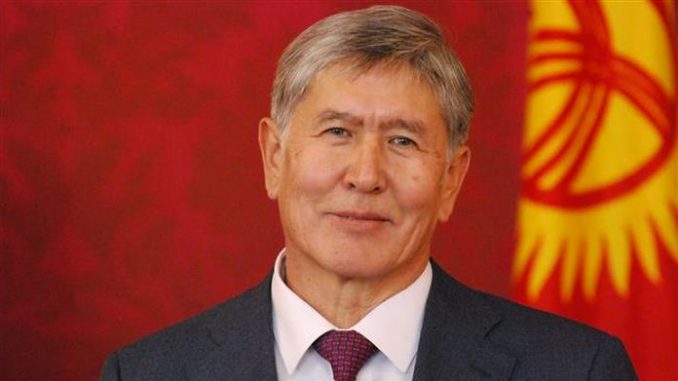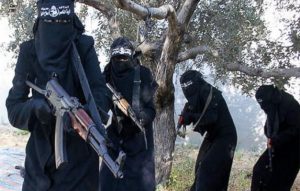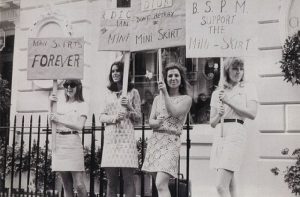
The president of Kyrgyzstan has intervened in a national debate about Kyrgyz identity, claiming “women in mini skirts don’t become suicide bombers.”
In a country were 80% of the population is Muslim, President Atambayev criticized those who oppose women wearing revealing outfits.

BYPASS THE CENSORS
Sign up to get unfiltered news delivered straight to your inbox.
You can unsubscribe any time. By subscribing you agree to our Terms of Use
Latest Video
The BBC reports:
His remarks followed several weeks of controversy over government-sponsored hoardings or banners put up in the streets of the capital Bishkek to try to dissuade Kyrgyz women from wearing Islamic clothing, notably the hijab, niqab and burka, ahead of a visit to the country by German Chancellor Angela Merkel in mid-July.
The hoardings, which, like the president’s remarks, have offended many, showed contrasting photos: one side shows women wearing the traditional nomadic clothing of Kyrgyzstan, the other shows women in niqabs and burkas, the full veils worn by some Muslim women. The caption underneath said: “Poor people! Where are we heading to?”
Addressing criticism of the design, President Atambayev said: “When we erected banners some smart people appeared and started pointing at miniskirts. Our women have been wearing miniskirts since 1950s, and they never thought about wearing an explosive belt.
“You can wear even tarpaulin boots on your head, but do not organise bombings. This is not religion. Let them wear even miniskirts but there must not be any blasts.”
He portrayed the wearing of some Islamic clothing as not only out of step with contemporary Kyrgyz national culture but also potentially dangerous.
“Terrorists are insane people,” he said. “Clothes also can change one’s thoughts sometimes. When we were searching for prisoners who had escaped a detention centre, Melis Turganbayev (the former interior minister) came to me and said that they had been eavesdropping on telephone conversations of wives and mistresses of criminals. Their wives and mistresses wore sacks on their heads and they wanted to organise bombings.
“If you do not like Kyrgyzstan you can leave our country and go wherever you want. We can pay your travel expenses, even to Syria,” the president said – an apparent reference to his government’s claim that around 350 Kyrgyz citizens are fighting with jihadi groups in Syria and Iraq.
Many people in the Central Asian state have been outraged by the anti-Islamic clothing campaign. A tongue-in-cheek Facebook group was created contrasting the traditional Kyrgyz head-dress, the Elechek, with Western women in tighter outfits. The inference was clear: was this option – the Elechek – any less conservative than the hijab when compared with Western clothing?
However, in 2014, while speaking at a session of Kyrgyzstan’s Security Council, President Atambayev said that it was not the conservative clothing, or Muslim traditions, that he had a problem with, but more the “Arabisation of society [and the] deprivation of the Kyrgyz nation of its language and traditions”.
In another protest against the president’s actions, four young women in hijabs posed on a road crossing in imitation of the cover of the Beatles album Abbey Road. The caption with this widely-shared meme was: “The moon does not heed the barking of dogs.”
A state commission concluded that the anti-Islamic hoardings did not breach advertising laws. But another state-run religious body, the Spiritual Board of Muslims of Kyrgyzstan, described the banners as “provocative”, claiming that they “undermine the unity of people”. There has been some vandalism of the designs and one of the banners was replaced with another showing the Kyrgyz Olympic team.
Tata Ulan, a well-known singer who defends traditional values, composed a rap criticising Kyrgyz girls who used to wear “half-naked” clothes instead of traditional ones.

Kyrgyz citizens have also been sharing pictures using hashtags that compare hijab wearers and women who prefer Western-style clothing. The majority of them bemoan the impact of Western culture on the country. Criticising the banners, some users also raised socioeconomic issues in the country, particularly labour migration to Russia and water shortages.


